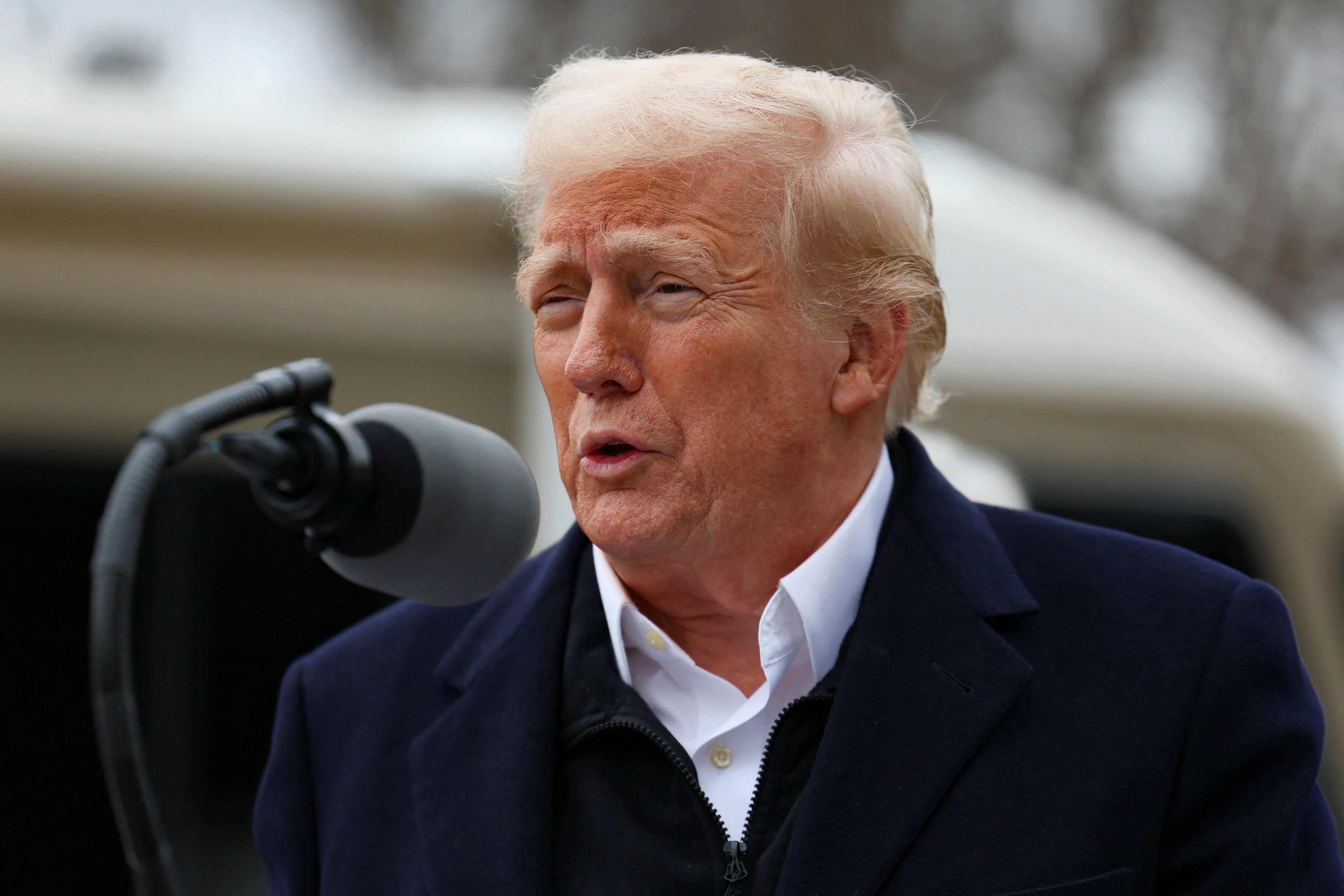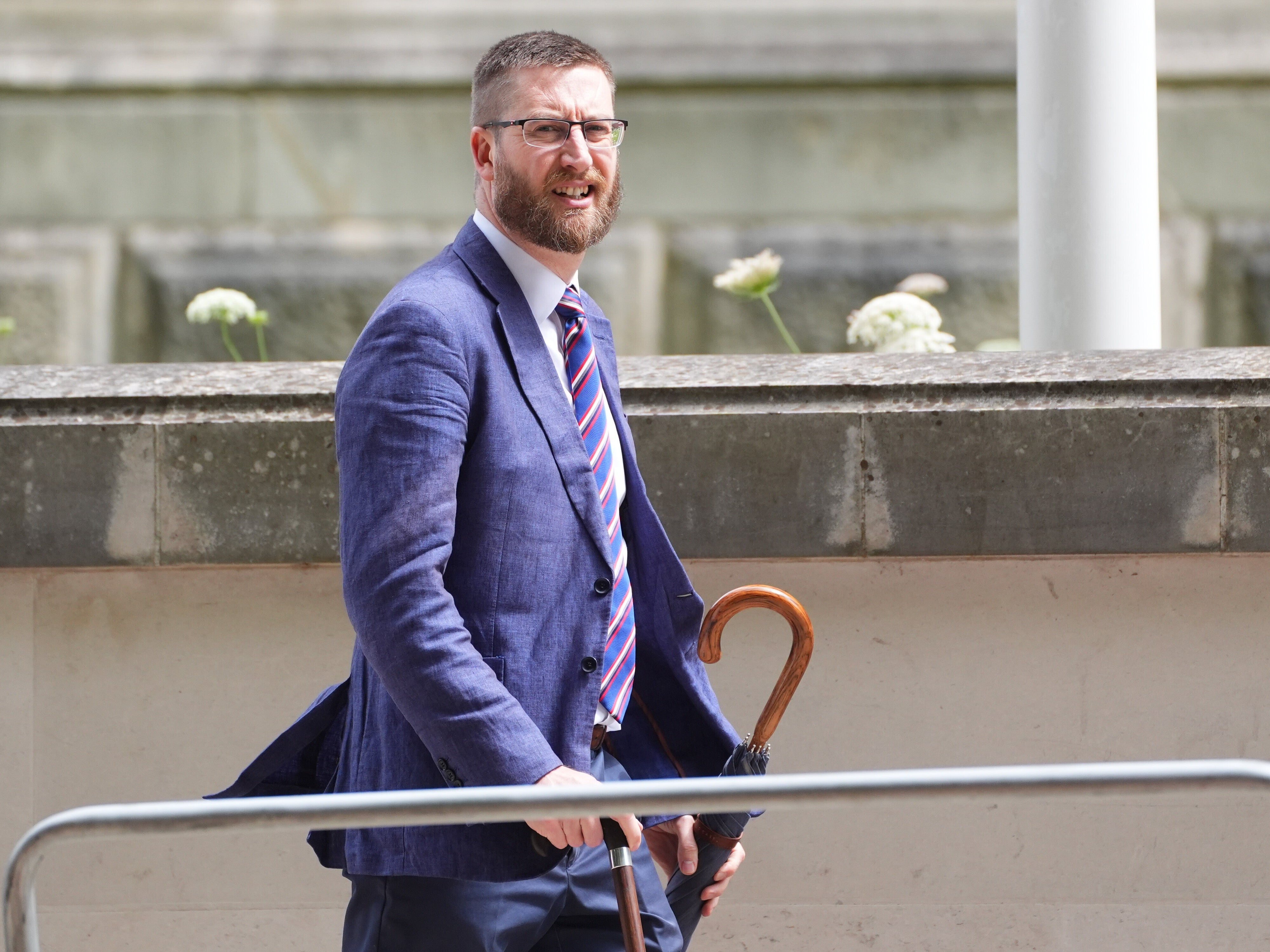Britain needs to learn from Donald Trump by being more positive and showing off its strengths, Rachel Reeves has said, signalling a shift in approach to Britain’s faltering economy.
The chancellor said people should be “shouting from the rooftops” and banging the drum for the UK following her trip to the World Economic Forum in Davos this week, where she met global investors in her latest attempt to boost the economy after new figures showed only slight growth.
The remarks are a change in tune for the under-pressure chancellor, who has previously been accused of “talking Britain down”.
Ms Reeves and Sir Keir Starmer painted a gloomy picture of the challenge facing the country after Labour won the election, causing former Bank of England chief economist Andy Haldane to warn that the government’s approach had generated “fear and foreboding” and uncertainty among consumers, businesses and investors.

The chancellor’s latest comments come as recent rises in borrowing costs threaten her economic plans, while leaders in the business sector continue to voice concerns over upcoming tax rises in April from her autumn Budget.
However, on Monday, the International Monetary Fund handed the chancellor a boost as the body forecast that the UK economy would grow by 1.6 per cent in 2025 after a weaker-than-expected 2024.
Speaking to The Times, Ms Reeves said: “I’ve been in sales mode this week in Davos. We’re all sick of Britain being in the slow lane, whether it’s British CEOs or British investors, and we want to see a revival of those animal spirits so that we can grow the economy and bring investment here.”
When asked if the country could learn from US president Donald Trump, she replied: “Yes, I think we do need more positivity.
“I’ve challenged businesses as well and said no one else is going to speak up for Britain apart from us. It hasn’t been a very British thing to say.
“We are absolutely fantastic as a country, we’ve got four of the best universities in the world. We’ve got some of the most amazing entrepreneurs with fantastic ideas. In all the sectors that are growing globally – AI, tech, clean energy – Britain has got unbelievable strengths in those sectors.
“We shouldn’t apologise for it and we shouldn’t be all polite about it. We should be shouting from the rooftops.”
Despite Ms Reeves’ renewed optimism, there are some in the business sector who have continued to put challenges at her door.
Last week, the boss of Next said the hike in national insurance rates for employers in April will make it more difficult for people entering the workforce. And on Thursday, Sainsbury’s announced it was cutting 3,000 jobs two months after it said Ms Reeves’s Budget would cost it £140m.
There has also been growing criticism in the farming industry, where family farm owners are worried over changes to rules on inheritance tax from April next year.
Ms Reeves defended her decision to raise taxes at the Budget, insisting her plan provided the stability needed to secure growth and fix the nation’s services.
When asked if she would reverse the tax rises, Ms Reeves said: “It’s not possible to back down on these things.
“The public finances were an absolute mess. I had to make a number of difficult decisions around welfare, on spending and tax, both in July and in the budget. If I start reversing tax increases, that stability that I’ve returned to the public finances would unravel.
“I know that I will come under pressure from different interest groups. I understand why they make the case that they make. I have a duty to make sure the sums add up.”
Ms Reeves’ suggestion that the UK could learn from the new US president comes as the UK’s former top civil servant said politicians in Britain could be inspired to replicate Mr Trump’s “extreme transparency”.

Simon Case, who served as cabinet secretary for four years, praised the US president’s “impressive political theatre” in signing a raft of executive orders that range from trade, immigration and civil rights since returning to office on Monday.
Writing in The Telegraph, he said it is difficult to imagine a British prime minister drawing large crowds like those seen at Mr Trump’s rallies and that politicians may follow his approach.
“With impressive political theatre, President Trump has signed executive orders issuing his commands across the reaches of the federal government”, he said.
“It is harder to imagine a British prime minister filling a stadium with adoring fans to witness the signature of memos instructing Whitehall to do this or that.
“Nevertheless, the extreme transparency of Trump’s approach might be something that more politicians in the UK are willing to try in future, given the declining public interest in and trust in politics.”







